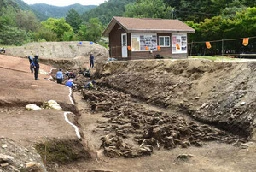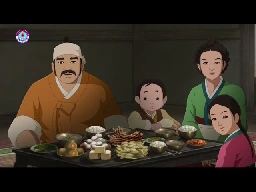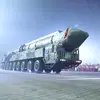
-
"The first rally in support of Palestine is held in Korea... The debate over the 'Israeli-Palestinian War' ignites" (translated article in post)
www.newspim.com 국내서 팔레스타인 지지 첫 집회 열려...'이·팔전쟁' 논쟁 불붙나[서울=뉴스핌] 송현도 기자 = 이스라엘과 팔레스타인 간 전쟁(이·팔전쟁)이 발발한 이후 세계 곳곳에서 양측을 지지하는 집회가 열리고 있다. 국내에서도 시민단체를 주축으로 팔레스타인 지지 집회가 열리며 관련 논쟁이 불붙는 중이다.노동자연대와 한국의 이슬람(
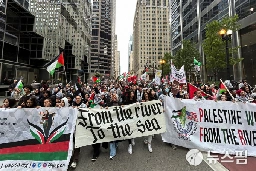
(Machine translation + slight editing)
The first rally in support of Palestine is held in Korea... The debate over the 'Israeli-Palestinian War' ignites
October 11, 2023
Since the outbreak of the war between Israel and Palestine (Israeli-Palestinian War), rallies in support of both sides have been held all over the world. Even in Korea, demonstrations in support of Palestine are being held led by civic groups, and related debates are heating up.
Workers' Solidarity and Korea Islam (Kore de Islam) held an emergency rally and march in solidarity with Palestine near Gwanghwamun, Jung-gu, Seoul around 12:30 pm on the 11th.
A total of 200 participants from Egypt, Pakistan, and Uzbekistan, including Koreans and Palestinians, participated in the rally. They held posters such as 'Israel must stop bombing the Gaza Strip' and 'We support the Palestinian resistance' and continuously shouted slogans such as 'Free Palestine'.
Palestinians and members of social civic groups are holding a rally in support of Palestine in relation to the Israel-Hamas war in front of the Seoul Finance Center in Jung-gu, Seoul on the afternoon of the 11th. 2023.10.11
The organizers claimed, “Ethnic cleansing and discriminatory oppression by the State of Israel against Palestinians have continued for decades since the founding of the State of Israel,” and “Israel is massacring innocent people.”
At the ensuing rally, Korean Islamic officials, including Palestinians from the Gaza Strip, gave speeches. In the speech, Mr. Amer, a Palestinian, was interviewed over the phone by an acquaintance in the Gaza Strip and said, "Food has been cut off, so there is a huge shortage, and even the means to provide treatment, such as water, electricity, and medicine, are now extremely lacking," he appealed.
The interview was interrupted due to poor connectivity due to the air raid.
Akela, an Egyptian who participated in the rally, unfolded a piece of paper with pictures of Palestinian children listed like a checkerboard in both hands and said, "It seems like the only language Israel uses is terror and oppression. Are the children in these pictures even the youngest terrorists?" raising their voice.
When the speech ended, these groups held a march around the Israeli Embassy from the steps of the Seoul Finance Center, where the rally took place, to Cheonggyecheon Buk-ro.
Initially, they planned to approach the Israeli embassy and deliver a letter of protest, but due to opposition from the police, they had to return to Musan and stop at reciting the contents of the letter near Cheonggyecheon-ro.
Those who participated in the rally appealed for recognition of the Palestinian people, but also appeared to support the airstrikes carried out by the Palestinian armed political faction Hamas against Israeli residents on the 7th.
Karim Hussein (31), an Egyptian who participated in the rally with his family that day, said, "As Muslims and human beings, we participated in the rally regardless of nationality." He added, "This Hamas airstrike is a 'reaction' to the long history that Palestine has experienced so far," he said.
Jeong Dong-seok (61), a member of the Workers' Solidarity Party, also argued that the cause of the war was, "I think the problem is that Israel has been expelling and massacring the native Palestinians for about 70 years."
The group plans to continue supporting Palestine by holding an additional rally in Incheon on the 13th.
Meanwhile, as the war between Palestine and Israel unfolds, rallies in support of Palestine and Israel are being held all over the world.
According to Reuters, on the 9th (local time), citizens in solidarity with Israel held a march in Buenos Aires, Argentina.
Additionally, on the 10th (local time), a rally supporting Israel and Palestine was simultaneously held near the Israeli consulate in New York.
At the United Nations headquarters in New York, USA, thousands of pro-Israel protesters gathered to condemn the surprise attack by Hamas, while in Chicago, Illinois, on the 8th (local time), Palestinian Americans, mainly, showed solidarity with Palestinians in the Gaza Strip. Street protests were also held.
In addition, 4,000 citizens demonstrated in support of Palestine in Amman, the capital of Jordan, and movements in support of Palestine are seen in the Arab world, from Ramallah in the West Bank to Beirut in Lebanon, Damascus in Syria, and Cairo in Egypt.
However, some Western countries are wary of the spread of anti-Semitism and attempts at terrorism.
Three protesters were arrested at a demonstration in support of Palestine held in front of the Israeli Embassy in London on the 9th (local time). British Home Secretary Suela Braverman called for a strong response, saying, "Waving the Palestinian flag may not be lawful if the intention is to glorify terrorism."
In Marseille, France, about 200 Palestinian supporters protested despite a police ban, and some protestors were fined.
After a rally in support of Palestine was held in front of the Sydney Opera House on the 9th (local time) and an Israeli flag was burned, Australian police warned citizens not to attend the pro-Palestinian rally planned in Sydney this weekend, saying it had not been approved.
-
Articles by Sovereignty Research Institute
Sovereignty Research Institute is a south Korean site which publishes articles about geopolitical and current events analysis and articles about DPRK. Over time I have been archiving some of their articles via archive.org or partially translating some, also during this time their URL has changed (archive version). I just want to create a list to keep track of some of their sections and series, for myself and also in case anyone is interested.
Quote from their about section:
> The Sovereignty Research Institute conducts research to realize the sovereignty of the country and the sovereignty of the people. The Sovereign Research Institute was created as an affiliated research institute of Sovereign Broadcasting in 2016 and became independent in 2023.
Note that this list is incomplete as it's a reference for myself that I am just sharing. I may edit or remove/replace it in the future.
---
Series:
"Changes in North Korea-China, North Korea-Russia relations and our tasks" part 1
"About North Korea's Juche Idea" part 1
---
North Korea Viewed Through the Constitution
Note: As the title suggests, this section quotes different sections of DPRK's constitution and explains them, also giving historical context.
---
Series:
"Significance, prospects, and points of note of the North Korea-Russia Summit" part 1
---
Series:
"Palestine Series" part 1
"Anatomy of Chosun Ilbo" part 1
---
---
-
People's Democracy Party: "We condemn the US imperialist aggression! Free Palestine!" (full statement in post)
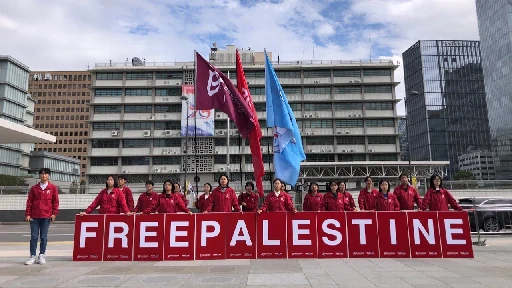
YouTube Video
Click to view this content.
Summary: PDP gave a speech in front of US embassy in Seoul and a speech in front of the White House in Washington DC. The speech expressed that only when Palestine is liberated can the conflict be resolved, and that the "US and Israel are one body and it is public knowledge in the whole world that the US aggression forces are behind the indiscriminate bombing and aggression of the Palestinians" and "the imperialist powers led by the United States have turned the world into a powder keg of war" using Zionism in the Middle East, NATO in Europe, Japanese militarism and the formation of an "Asian version of NATO" in Asia, strengthening the war alliance against DPRK and plotting a war in East Asia.
The speech concludes: "the deeper imperialist aggression becomes, the stronger a unity of anti-US independent forces become. The Palestinian people, who seek independence and justice, will defeat the aggressive US imperialist and win their liberation. From the river to the sea, Palestine will be free!"
---
Click to read statement here
We condemn the US imperialist aggression! Free Palestine!
The clash between Hamas and Israel is escalating to all-out war. In the early morning of July 7, Hamas fired thousands of rockets into Israel and its militants infiltrated, reportedly capturing dozens of Israeli soldiers and a number of civilians. In the statement, the Hamas military commander Mohammed Deif said, “Today is the great day to end the occupation. We have decided to put an end to all of the occupation’s crimes. The time is over for them (Israel) to act without accountability,” Israeli Prime Minister Benjamin Netanyahu announced that “we are embarking on a long and difficult war,” and that “we have begun the offensive, which will continue with neither limitations nor respite until the objectives are achieved.”
Hamas’s armed offensive is fundamentally aimed at freedom and liberation of Palestine. Israel has launched an extensive invasion of Gaza since 2000 to eliminate Hamas, the armed force for Palestinian liberation. Israeli massive air raids in 2008, 2012, and 2014 are just a few examples. More recently, in May 2021, Israel’s violent suppression of Palestinian protesters led to the “11-day war,” in which 242 lives were lost in Gaza, and in 2022, Israel indiscriminately struck Gaza day after day. Israel is also responsible for the routinized pain of the Palestinian people. By blockading all land and sea to Gaza, Israel has turned Gaza into the world’s largest prison. Only when Palestine is liberated can the regional conflict be fundamentally resolved.
The cause of the war is the US imperialist aggression. As soon as the conflict broke out, the US ‘president’ Biden did not hesitate to make most hostile remarks towards Palestine ‘The US stands with Israel’, ‘military to military, intelligence to intelligence, diplomat to diplomatᅳto make sure Israel has what it needs.’ The US and Israel are one body and it is public knowledge in the whole world that the US aggression forces are behind the indiscriminate bombing and aggression of the Palestinians all time. The founding of Israel itself is the result of rob territory by the US and British imperialist after World War II, and the US puts Israel first to invade the Middle East in order to have its hegemony. It’s an undeniable fact that Palestine people are the biggest victims of the US aggressors.
The imperialist powers led by the United States have turned the world into a powder keg of war. The aggressive US imperialist is simultaneously carrying out invasion against anti-US independent states and forces, using Israeli Zionism in the Middle East, NATO in Europe, and Japanese militarism in Asia. In the Middle East, the US aggressors put Israeli Zionists up to murdering the Palestinian people while in Europe, they have been encouraging NATO to expand eastward and trigger war in Ukraine by massacring the Russian people in Ukraine. In East Asia, they are establishing an “Asian version of NATO”, strengthening the war alliance against North Korea and plotting a war in East Asia. Including Iran and Lebanon, Anti-US armed forces’ support for Hamas shows the deeper imperialist aggression becomes, the stronger a unity of anti-US independent forces become. The Palestinian people, who seek independence and justice, will defeat the aggressive US imperialist and win their liberation.
From the river to the sea, Palestine will be free!
-
Anti-imperialists in S. Korea: "US troops must leave the Korean Peninsula immediately" "The United States must stop atrocities that turn other countries into battlefields" (article translation)
〈US troops must leave the Korean Peninsula immediately〉 … September World Anti-Imperialist Simultaneous Struggle, Pyeongtaek
Original article in Korean: 〈미군은 당장 코리아반도에서 떠나야〉 … 9월 세계반제동시투쟁 평택
"As anti-North Korea, anti-China, and anti-Russian actions intensify, a war in East Asia following the war in Eastern Europe will inevitably break out"
"Just as the imperialist aggressor forces centered on the United States are spreading the war in Eastern Europe by using Ukraine as a battlefield and using neo-Nazi forces as war agents, they are turning the Korean Peninsula into a battleground in Asia and advancing Japan with Yoon Seok-yeol's fascist forces as the US imperialists. They plan to use it as a base to start the Korean War and the Taiwan War."
(Above quotes from a statement included below)
Article via machine translation and slight editing and links added by me:
> The September World Anti-Imperialist Struggle, hosted by The World Anti-imperialist Platform and Anti-American Struggle Headquarters, is vigorously underway in South Korea.
> On September 9, in front of the Camp Humphreys US military base in Pyeongtaek, Gyeonggi-do, the People's Democratic Party (People's Party), Gyeonggi-do Party and local activists posted a slogan in Korean and English, “Oppose US imperialist war maneuvers!” Demolition of US military bases around the world! They vigorously carried out the global anti-imperialist struggle under the slogan, “A united people will always win!”
> First, a moment of silence was held in memory of the martyrs who died fighting for independent unification and democracy, and then the March for Beloved was sung.
> The Chairman of the Gyeonggi Provincial Party Organizing Committee of the People's Democratic Party, who presided over the event, said, "US-Japanese imperialism and its leader Yoon Seok-yeol are strengthening the and plotting the while also triggering the Taiwan War." With the slogan, he said, “We will put an end to the American imperialist invasion force, the cause of the world war, and overthrow its henchman Yoon Seok-yeol, hastening the true liberation of this land and the decisive victory of the anti-imperialist and independent forces.”
> Participants chanted slogans such as “We oppose the U.S. imperialist war maneuver!”, “We condemn the trilateral military alliance between the U.S., Japan, and South Korea!”, “Down with Yoon Seok-yeol, who supports nuclear contamination!”, and “Let’s crush the Asian Pan-NATO North Korean invasion war alliance!” They shouted,
> Pastor Jang Chang-won of the Osan Migrant Workers Center said, “I would like to emphasize that geopolitically, this is the center of East Asia’s connection and the center of solidarity is also on the Korean Peninsula.” “The U.S. military is conducting biochemical experiments all over the world, including the Korean Peninsula.” We continue to protest against biological weapons testing. “American soldiers who do not treat people like humans should leave the Korean Peninsula immediately,” he said.
> Also, military training is taking place every day on the Korean Peninsula. There are bombs all around us that should not be used. The underlings of American imperialism include the Yoon Seok-yeol government. Since the Yoon Seok-yeol government came into power, the public security administration has become more vicious and the war atmosphere is intensifying.” “We do not want division, but we want to live proudly as one nation,” and “The United States must stop atrocities that turn other countries into battlefields.” “It will have to be done,” he said.
> Hyun Pil-kyung, director of the U.S. Military Base Recovery Research Institute, said, “At the two U.S. military bases in Pyeongtaek, where the 2023 Ulchi Freedom Shield war exercise is in progress, different aspects from previous war exercises and the mobilization of new weapon systems were witnessed.” Training, so-called CBRN training to respond to chemical weapons, biological weapons, and nuclear materials, and gunnery practice at the Songtan U.S. Air Force Base were conducted, and CH-53 large transport helicopters and Boeing 707-based reconnaissance aircraft, which are rarely seen, were seen. They recently took off from Okinawa and flew to the Korean Peninsula. It is believed to be a reconnaissance aircraft of the RC-135 family, known for reconnaissance in and around the area.
> He continued, “It has nothing to do with the interests of any working people in the world, and is an alliance solely for the comfort of the United States and its followers, which threatens their lives and plunges them into political powerlessness and economic poverty.” He emphasized, “Complete peace will be realized only when Taiwan is unified and the Okinawan people achieve the withdrawal of U.S. forces.”
> Finally, the participants read the global anti-imperialist struggle statement, “Let us rise up in the anti-American, anti-fascist movement, remove the U.S. military and overthrow Yoon Seok-yeol!” and then sang the “Internationale.”
The following is the full statement:
World Anti-Imperialist Struggle Statement
Let us rise up in the anti-American, anti-fascist movement, dismantle the US military and overthrow Yoon Seok-yeol!
The US aggressor's nuclear war maneuver in East Asia is intensifying. At the end of August, the U.S. imperialist aggressor forces conducted war exercises of aggression targeting North Korea, China, and Russia, respectively, near the Korean Peninsula, the South China Sea, and the Kuril Islands. In particular, the large-scale Ulchi Freedom Shield is a nuclear war exercise against North Korea using B-1B nuclear strategic bombers and a preemptive nuclear strike exercise against North Korea based on . , which changed to suit changed conditions, is an East Asian nuclear war strategy that specifies not only an invasion plan against North Korea but also an anti-China invasion plan. Meanwhile, on August 29, the U.S. imperialist aggressor forces, in addition to Yoon Seok-yeol and a group of military magnates, also brought in the Japanese militarist aggressor force and conducted missile exercises off the coast of Jeju. The US imperialist aggressors are seriously instigating a nuclear war in East Asia by turning the Korean Peninsula into a nuclear battlefield.
The strengthening of the triangular military alliance between the United States, Japan, and Korea leads to the escalation of World War III. In a joint statement released as a result of the Camp David summit in mid-August, it was revealed that the was completed, saying that the between the three countries is , brought up the Taiwan issue, interfered in China's internal affairs, misrepresented the true nature of the war in Ukraine, which was unfolding as an anti-imperialist and anti-fascist war, and reaffirmed sanctions against Russia. By saying “complete denuclearization,” he made his aggression toward North Korea blatant. As anti-North Korea, anti-China, and anti-Russian actions intensify, a war in East Asia following the war in Eastern Europe will inevitably break out, and its timing will be brought forward. The Korean Peninsula is being transformed into a hot spot by invading forces.
Yoon Seok-yeol, the fascist puppet of American imperialism, is on the move. Yoon Seok-yeol, who has turned outward while preoccupied with being pro-American and pro-Japanese and treasonous, is deepening the confrontation between North and South in order to hasten the war against North Korea and is strengthening his oppressive rule to suppress patriotic forces. Above all, he fully sympathizes with the maritime nuclear terrorism of Japanese militaristic forces, denounces opposition to speculation on nuclear contamination as “unscientific,” slanders the anti-Japanese people as “anti-national forces,” and seeks to provoke an anachronistic “ideological debate” by calling them “communist.” Totalitarianism: The distortion of history is deepening by pouring out sophistry. Ahead of the general election, Yoon Seok-yeol is focused on repressing fascists and eliminating political opponents, suppressing people's rights, and concentrating on extending fascist power. At the same time, ahead of the war of aggression, he is going crazy to eliminate all forces that pursue national independence and peaceful unification in a fascist manner.
We must put an end to the North Korean invasion war strategy, dismantle the US imperialist invasion army, and overthrow fascist belligerent Yoon Seok-yeol. Just as the imperialist aggressor forces centered on the United States are spreading the war in Eastern Europe by using Ukraine as a battlefield and using neo-Nazi forces as war agents, they are turning the Korean Peninsula into a battleground in Asia and advancing Japan with Yoon Seok-yeol's fascist forces as the US imperialists. They plan to use it as a base to start the Korean War and the Taiwan War. The Third World War has begun in earnest due to the US imperialist aggressors, and nuclear war on the Korean Peninsula is imminent due to Yoon Seok-yeol. This is an unprecedented crisis situation. Overthrowing Yoon Seok-yeol is the only way to remove the tentacles of the US-Japanese aggressors, put an end to the North Korean invasion war maneuver, and end the fascist rule. Our people will rise up in the anti-American, anti-fascist movement to strike at the US imperialist aggressor forces, overthrow Yoon Seok-yeol, and bring forward a new world of independence and peace.
-
Imagining South Korea without America - A new book questions whether the ROK-US alliance has truly served Korea and Koreans
This is a book review in Hankyoreh, south Korea's top center-left liberal paper.
Excerpts:
> The book is “The Naked ROK-US Alliance,” written by Daegu University professor Kim Sung-hae, who completed a master’s in international affairs at the University of Georgia and a doctorate in journalism at the University of Pennsylvania.
> As the book’s subtitle suggests, this book lists the “reasons for resolving to break up with America”
> The first reason the author provides is the cost of the alliance. To maintain the alliance with the US, Korea must lend military bases free of charge, foot part of the bill for stationing US troops on the peninsula and be a major buyer of US-made weapons.
> On top of these financial expenses are opportunity costs — the potential value of the numerous options Korea has had to forgo because of the alliance. Perhaps best-known was Korea’s decision to let the US deploy the THAAD missile-defense battery in 2016. That turned China, which had been Korea’s biggest trade surplus country since the two countries normalized their relations 30 years earlier, into a major trade deficit country.
> Another reason cited by the author is that Korea’s duties as an ally could entangle it in an undesired conflict. There’s a growing danger of Korea being dragged into a war in Taiwan, should such a war occur.
> The most serious issue, however, is that as Korea strengthens its alliance with the US, its enemies are growing more numerous, and stronger, too. It’s the US that defines those enemies, and Korea is left to passively follow its will.
> The US may well view its rivals China and Russia as enemies, but Korea’s national interest is different from that of the US. There’s no inherent reason why Korea should be an enemy of China or Russia.
> The author goes on to argue that Koreans are misguided in their belief that they owe the US gratitude for its role in defending them during the Korean War. While it’s true that the war began with North Korea’s invasion of the South, US actions strongly suggest it had been quietly hoping a war would break out, too.
> In the first phase of the war, the US ignored a UN resolution by pushing north of the 38th parallel, which brought Communist China into the war with devastating consequences for the Korean Peninsula. The US also bears responsibility, either directly or indirectly, for the death of hundreds of thousands of innocent people slaughtered in countless massacres, including the Bodo League massacre, the No Gun Ri massacre, and the Sinchon massacre.
> And the Korean War’s impact on the US was not wholly negative. For example, the production of large amounts of military armaments throughout the war enabled the US to overcome the difficulties of an economic recession.
> The author also asserts that the US was not the patron of Korean democracy and economic development that many Koreans believe it to have been. All the US wanted from Korea was a low level of modernization. Furthermore, the US was also happy to support dictatorial governments in Korea that butchered their own people so long as they helped block the communist threat. It’s a myth, the author says, that the US paved the way for Korea’s democratization and industrialization.
> Another argument made in the book is that Koreans’ experience serving as “loyal subjects” of the Japanese empire during the colonial period prepared them for revering the US after Korea’s liberation.
> In other words, Korea is honoring and obeying the US, just as it once did with the Japanese Empire. The fact that Korea has still not regained wartime operational control, or OPCON, of its own military illustrates its lack of autonomy.
> While the US would only have control of 40,000 troops in NATO (as of February 2022), US Forces Korea with OPCON would be able to direct the 600,000 troops in the Korean military in the event of a war. Korea can hardly be regarded as having autonomy when it has put its entire military under American control.
> For such reasons, the author asserts that Korea would be best served by dismantling its alliance with the US.
> What alternatives are there? The author says the best option would be for South and North Korea to jointly adopt neutrality. Cracks in the US-led unipolar order, the international shift toward a multipolar system, and the international financial system’s move away from the US dollar are creating conditions favorable for such a change.
> But setting aside the feasibility of that proposal, it’s worth pondering the author’s argument that if Korea is to achieve true autonomy, it must first wake from the stupor of blind obedience to the US.
-
South Korea: Missing April 3rd victim identified for the first time in 74 years in Golryeonggol, Daejeon
This article is originally in Korean. These are some excerpts with machine translation and my slight additions:
> Jeju Special Self-Governing Province and the Jeju April 3rd Peace Foundation announced that the identity of the missing April 3rd victim, whose fate was unknown, was confirmed in Golnyeonggol, Daejeon [Note: Several photos of violence and human remains are in that link], after 74 years.
> The victims identified this time are 70 of the 1,441 remains excavated in Golnyeonggol through the first pilot project of 'Genetic identification of 4/3 victims from excavated remains from outside the province' conducted by Jeju Special Self-Governing Province and the Jeju 4/3 Peace Foundation.
> The person whose identity was confirmed was the late Kim Han-hong, from Bukchon-ri, Jocheon-myeon, Jeju-si. During the April 3 Incident, he was hiding in a field away from the village to avoid punitive forces and armed forces. He came to the military at the end of January 1949 and surrendered himself on the rumor that he would be set free if he surrendered. The bereaved family said that after being detained in the distillery camp, no news was heard.
> The list of prisoners shows that the victim was sentenced to seven years in prison on July 4, 1949 and served his sentence at Daejeon Prison.
> On October 4, the remains of the victims went through a handover process with the bereaved families, the Jeju April 3 Victims' Families Association, the Sanae Incident Victims' Families Association, and officials from the Ministry of the Interior and Safety in attendance, and a ritual was held at Sejong Eunhasu Park under the auspices of the bereaved families, and then cremated in October. They are scheduled to be repatriated to Jeju by plane on the 5th.
> At the site where the remains of the victims are returned to their hometown, the bereaved families and officials, including Governor Oh Young-hoon, will greet them in person, and a ceremony to return the remains will be held afterwards. Subsequently, an identification briefing session will be held on the same day to commemorate the victims and comfort their bereaved families.
> The Truth and Reconciliation Commission is in the process of collecting remains from 2,000 of the 3,900 remains temporarily enshrined in the Sejong Memorial House, including the remains of the Daejeon Golryeonggol victims, and is conducting genetic tests on bereaved families. is planned to be carried out.
> Chairman [of the Daejeon Mountain Incident Victims' Families Associatio] Jeon Mi-kyung said, “How good would it have been if something like this had happened to the families of the massacred people while they were still alive?” and “It breaks my heart that many family members of the massacred people are still passing away while the genetic identification is delayed.”
> The son of the late Kim Han-hong, whose identity was recently confirmed through genetic identification, died in 2020 without being able to identify his father's remains. However, fortunately, he was able to confirm his identity because he left behind DNA data through blood collection while he was still alive.___
-
(CW: Descriptions of violence and death) New testimony sheds light on untold massacre of villagers by S. Koreans during Vietnam War
Excerpts:
> Fifty-nine years ago, on Sept. 11, 1964, Korea sent 140 soldiers belonging to the medical corps to Vietnam as part of the war effort. Over the nine years that followed, South Korea would end up sending a total of 346,393 troops to fight in Vietnam in its Blue Dragon, Fierce Tiger, and White Horse divisions.
> In 1999, Hankyoreh 21 broke the story that South Korean troops had massacred civilians in Vietnam with in-depth reporting. More than 20 years later, in February of this year, a South Korean court ruled that the country bears a legal liability to those victimized by these massacres. However, the South Korean government still insists that no such slaughter occurred.
> This is the first time that Bình Thanh is being named in the history of Korea’s involvement in the Vietnam War that began in 1964. Bình Thanh is not mentioned in the official “War History of ROK Forces to Vietnam” published by Korea’s Department of Defense in 1979.
> 57 years ago, as a 10-year-old girl, Tống Thị Kim Loan said she picked peppers in the fields with her grandfather, Tống Mai. [...] the villagers had heard that South Korean soldiers couldn’t get enough of them. The young girl and her grandfather packed the peppers in small bags and took them to the Korean soldiers at the Go Cot base.
> When Tống Thị Kim Loan’s grandfather, Tống Mai, arrived at a South Korean military post, he had Vietnamese peppers and a letter in his hand. He was accompanied by Cao Phó and Mai Cắt, who lived in his same village. The three of them represented the village and faced the South Koreans for the first time. All three were born in the 1890s and were over 70 years old at the time. Their letter to the South Koreans was written in Chinese characters. Having learned to read and write Chinese characters from a young age, they assumed that the Koreans would be able to read it as well.
> The South Korean soldiers based in Bình Thanh did not have interpreters. The letter contained a heartfelt plea from the village elders: “The villagers are all innocent civilians. Please do not harm them.”
> A young Tống Thị Kim Loan was holding her grandfather’s hand when he presented the Korean soldiers with the letter and his gift of peppers.
> A month after Tống Thị Kim Loan and her grandfather offered the chilis to the soldiers, the South Korean soldiers paid a visit to Tống Thị Kim Loan’s neighborhood. Instead of gifts, they brought guns.
---
CW: Details about the massacre
> The South Korean soldiers visited her house early in the morning, before breakfast, at around 6 or 7 am, she said. They forced the family outside. She stepped outside with her mother, 30-year-old Mai Thị Én, and younger brothers, 7-year-old Tống Phuong and 6-year-old Tống Hoang. Six members of Von Ke’s family, who lived in the same neighborhood, were also dragged out into the street, making for 10 people in total.
> At first, the soldiers handed out canned food, most likely C-rations. Some of them started to set up a submachine gun under a big tree. After some time had passed, there was a huge bang, as if something had exploded. Then, there was smoke everywhere. It was impossible to see anything. The soldiers had set off a smoke bomb.
> The thunder of the gun rattling off its bullets shook the ground, and the sound was ear-splitting. Tống Thị Kim Loan grabbed her mother and hid behind her. People fell to the ground as they screamed, and Tống Thị Kim Loan happened to fall underneath everyone else. The gunfire stopped. So did the groans of agony.
> Tống Thị Kim Loan seized her wits and got up. She wondered if the soldiers had set off the smoke bombs because they were afraid to see what they were doing, mowing down people with their guns. The soldiers left the village to return to their base without checking the bodies, which was a stroke of luck in Tống Thị Kim Loan’s favor. She suffered only a small burn on her stomach. She can still remember the chilling sensation of the bullet grazing her belly.
> Tống Thị Kim Loan’s father, who had fled from the scene, returned at night to collect the bodies with the village elders. A banana tree was planted at the grave of the girl’s mother. Her mother had been in full term. Planting a banana tree to celebrate a pregnancy was a village tradition. When it was time to give birth, villagers celebrated the birth of a new life by eating bananas from the tree. However, her mother would never be able to commemorate anything any longer.
---
> “All the village elders who visited the soldiers with the chilis died,” said Le Van Hien, 76. Presenting a list he wrote on the computer, Le Van Hien pointed at the three names at the top of the list: Tống Mai, Cao Phó and Mai Cắt. These were the names of the village elders who had visited the South Korean soldiers with the bag of chili peppers and a letter written in Chinese characters.
> Le Van Hien has been recording the history of how the people of Bình Thanh fought against outside forces. His records from 1930 to 1975 have already been published into a book, which contains stories of people who died at the hands of South Korean soldiers.
> Following the end of the Vietnam War in April 1975, memorial monuments were erected in villages where residents were lost at the hands of South Korean soldiers. Monuments of “hate” were built in places such as Bình Hòa and Phú Yên. In some regions, monuments were erected 50 years after the war.
> “I will propose the erection of a monument of hate rather than a memorial monument,” said Le Van Hien, explaining that this is because all the victims were helpless elders, women and children. Referencing the Vietnamese government’s slogan of overcoming the past and moving toward the future, Le Van Hien wordlessly shook his head.
>“Still, I can’t help but hate. Incidents like this should be abhorred forever,” he said.
-
N. Korea welcomed at athletes' village in Hangzhou
> North Korean athletes were officially welcomed at their living quarters in the Chinese city of Hangzhou for the 19th Asian Games on Friday, the eve of the opening ceremony of the quadrennial continental competition.
> After official welcoming messages and gifts from host China, the North Korean delegation chanted rallying slogans and posed for a photo.
> Most of them did not answer reporters on their way back to the residence, but a man who appeared to be a coach said their goal is to win and hoped for a good performance at the competition.
> According to the organizers, North Korea has registered 185 athletes in 17 sports for the Asiad, the reclusive country's first appearance at an international multisport competition since the 2018 Asian Games in Indonesia.
> North Korea finished 10th at the previous Asiad five years ago, with 12 golds, 12 silvers and 13 bronzes.
-
South Korea: News outlets raided as attacks on media escalate, International Federation of Journalists and Journalists Association of Korea condemn the intimidation of media workers and news outlets
www.ifj.org South Korea: News outlets raided as attacks on media escalate / IFJNews outlet Newstapa and broadcaster Joongang Tongyang Broadcasting Company (JTBC) have been raided by South Korean authorities after reporting in 2022 on an allegedly fake interview claimed to discredit then-Presidential candidate Yoon Suk Yeol. The International Federation of Journalists (IFJ) and...
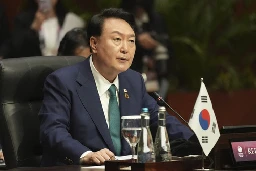
Article is from Sept. 14, 2023.
Excerpts:
>News outlet Newstapa and broadcaster Joongang Tongyang Broadcasting Company (JTBC) have been raided by South Korean authorities after reporting in 2022 on an allegedly fake interview claimed to discredit then-Presidential candidate Yoon Suk Yeol. The International Federation of Journalists (IFJ) and its affiliate, the Journalists Association of Korea (JAK), condemn the intimidation and legal harassment of media workers and news outlets and urge the authorities to cease all investigations immediately.
> On September 14, investigators and prosecutors with the Seoul Central District Prosecutors Office were dispatched to the offices of online news outlets Newstapa and broadcaster Joongang Tongyang Broadcasting Company (JTBC), seizing materials related to a 2021 interview between trade union leader and former journalist Shin Hak-lim and Kim Man-bae, a key figure in a land development scandal.
> Announced on September 7, the decision by authorities to prosecute media professionals and outlets marks the first actioned prosecution related to press coverage since 2008. However, since his election in 2022, President Yoon has been at the centre of several attacks on press freedom. In October 2022, the MBC was targeted through legal action and protests led by PPP lawmakers, after the broadcaster allegedly misrepresented comments made by the President in a hot mic incident. President Yoon later excluded journalists and media workers with the outlet from a presidential envoy to the G20 in November.
> JAK President Kim Dong-hoon said: “We express concern about the increasing intensity of the government's media suppression as we approach next year's general elections. The ruling party in South Korea, the People Power Party(PPP), has not only taken legal actions against media outlets and journalists who reported on the dialogue records of our fellow journalists, Shin Hak-lim and Kim Man-bae, both of whom have a journalism background but also against journalists who quoted and covered these records. Moreover, they have even targeted political commentators who wrote articles about the related content. Furthermore, they have filed defamation complaints against radio hosts who reported on the incident. […] The JAK, along with other major media organizations, is committed to staunchly opposing the ruling party's endeavours to manipulate the media and will dedicate their collective efforts to safeguarding press freedom.”
> The IFJ said: “These raids and investigations against media outlets are the latest in a concerning trend of media rights violations led by the incumbent government in the Republic of Korea. The IFJ urges the prosecutors’ offices to withdraw all investigations against Newstapa, JTBC, and the outlets’ journalists, and calls on the People’s Power Party to ensure that press freedom is upheld and protected.”
-
Article: "Shattering the myth that all N. Koreans want to defect to S. Korea." Interview of author and producer Cho Cheon-hyeon, who has spent past 2 decades researching defectors. (2021 article)
"The combined number of those seeking to stay in China and those wanting to return to the North is actually greater than those hoping to reach South Korea."
"The more South Korea and the international community get involved in defector issues with their own political agenda, the more likely it is to end up further cementing our national division."
Lee Sung-hwan (pseudonym): "I hate being called a ‘defector.’ I didn’t leave because I’m opposed to the politics in North Korea. I’m just someone who left to earn money, and I plan to return once I’ve made some."
---
Note: Hankyoreh is a center-left liberal newspaper from South Korea.
Excerpts:
> Since 1997, Cho has met with North Korean defectors primarily in China’s Yanbian prefecture and the North Korean-Chinese border region. Other than last year, when the COVID-19 pandemic made it impossible to visit China, he has met with defectors virtually every year for the past two decades or so. Based on his meetings, they presented quite a different image from the one commonly perceived in South Korea, he said.
> For example, Cho administered a survey to 100 female North Korean defectors whom he had met with three or more times between August 2001 and October 2003. Forty-one of them said they wanted to travel to the South, while the other 59 did not: 34 wanted to return to North Korea, 21 hoped to remain in China, and four wanted none of the above. Indeed, Kim Ryon-hui, the so-called “Pyongyangite in Daegu,” has demanded repatriation ever since she arrived in the South in 2011, insisting that she only came because she had been “deceived by a broker.”
> Lee Sung-hwan (pseudonym), one of the defectors who hoped to return to the North, is quoted as saying, “I hate being called a ‘defector.’ I didn’t leave because I’m opposed to the politics in North Korea. I’m just someone who left to earn money, and I plan to return once I’ve made some.”
> Pak Kyong-hwa (pseudonym) is a native of Onsong, North Hamgyong Province, whom Cho met in the Chinese city of Yanji in 2014. “If it’s someone who left after committing a crime, someone who’ll be punished if they go back, you’ll never hear them talk about going back to North Korea. But people like us just quickly earn money and go back,” she explained.
> “Certain brokers, NGOs and missionary groups have been orchestrating and expanding North Korean defections to South Korea for political purposes. And as certain far-right and conservative media in South Korea and Japan have either parroted the things they say or actively orchestrated things themselves, things have really crossed the line,” Cho said. > > The primary victims of actions like these are the defectors themselves. Orchestrated defections lead to intensified controls on the North Korean-Chinese border, leaving far fewer options available to those who seek to remain in China or return to the North. > > Some defectors, NGOs and missionary groups have also taken advantage of this “defector myth” to perpetrate fraud. As a representative example, Cho mentioned the Yerang Mission incident, which the Supreme Court declared a case of fraud in 2008. Beginning in the early 2000s, the mission appropriated over 2 billion won (US$1.8 million) in donations raised through internet posts about “risking death to evangelize in North Korea” and the “martyrdom and defections of North Koreans.” In 2006, the church was tried amid accusations by congregation members, and most of the messages it posted were found to have been false.
> “The more South Korea and the international community get involved in defector issues with their own political agenda, the more likely it is to end up further cementing our national division,” he warned.
---
Related:
- Nearly 1 in 5 North Korean defectors say they regret coming to South Korea
- Interview: A North Korean mother’s quest to return home to Pyongyang
- [CW: Child abuse, SA] S. Korean pastor under investigation for molestation at the boarding school he established for N. Korean defectors
- "Spy Nation" (2016): Film Shines Light on South Korean Spy Agency’s Fabrication of Enemies
- Unreliable witnesses: The challenge of separating truth from fiction when it comes to North Korea
- The insidious threat of fake news surrounding North Korea
-
South Korea’s opposition leader to continue hunger strike from hospital
(Note that Hankyoreh is a liberal paper with a generally center-left view)
>After being rushed to a hospital on Monday due to his deteriorating health, Lee Jae-myung, the leader of the Democratic Party of Korea, has decided to continue his hunger strike from his hospital bed. > >Lee has already been fasting for 19 days to demand that the government of President Yoon Suk-yeol completely overhaul its administration of state affairs.
>Since being admitted to the hospital, Lee is reportedly out of the woods, but has not yet regained his strength. Despite this, Lee has refused to take any food or drink other than fluids administered by a drip.
> The most prominent Korean politician to continue a hunger strike in the hospital is former President Kim Young-sam. Kim began fasting in 1983 to protest the dictatorship of Chun Doo-hwan after Chun banned Kim from participating in political activities and placed him under house arrest.
> Kim demanded five measures for democratization, including the release of detainees and the reinstatement of fired professors and workers. On the eighth day of his hunger strike, the government forcibly hospitalized Kim in a special room at Seoul National University Hospital, but Kim continued his hunger strike for a total of 23 days while being treated with an intravenous line. > > Kim’s house arrest was eventually lifted, and his hunger strike was an important catalyst in bringing about reforms to Korea’s Constitution that instituted a direct democratic system. > > Former President Kim Dae-jung was also sent to Severance Hospital for dehydration on the eighth day of his hunger strike in 1990, when he was leader of the New United Democratic Party, but continued his strike from the hospital. Kim was on strike for the full implementation of local self-government, and he broke his fast on the 13th day only after receiving a promise from the government and ruling party that his demands would be implemented. > > The hunger strikes by the two former presidents, widely considered “eternal rivals,” were well-received by the public and are credited as achieving meaningful results.
-
About Ganggangsullae, a Korean traditional circle dance and communal folk play of the harvest season
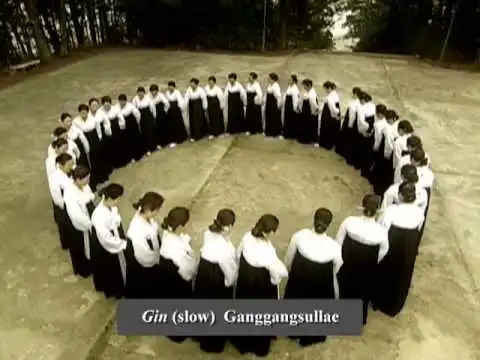
YouTube Video
Click to view this content.
From the video description:
> Ganggangsullae [강강술래] is a seasonal harvest and fertility ritual popular in the south-western part of the Republic of Korea, performed primarily on Korea’s Thanksgiving [Chuseok] in the eighth lunar month. Under a bright full moon, dozens of young, unmarried village women gather in a circle, join hands and sing and dance all night under the direction of a lead singer. During interludes, the women playfully mime vignettes reflecting life in a farm or fishing village, including treading on roof tiles, unrolling a mat, catching a mouse or tying herrings. The dance takes its name from the refrain repeated after each verse, although the exact meaning of the word is unknown. Once a rare break from restrictive rules governing the behaviour of rural young women who were not allowed to sing aloud or go out at night, except during the Chuseok Thanksgiving celebration, the ritual is mostly preserved today by middle-aged women in cities and taught as part of the music curriculum of elementary schools. Now practised as a performing art throughout Korea, it can be seen as a representative Korean folk art. It is an important hereditary custom drawn from the rice culture that pervaded daily life in the countryside. The easy tunes and movements can be learned quickly for this communal practice that contributes to harmony, equality and friendship among the women dancers.
-
People's Sovereignty Party (tentative name): inaugural declaration, direction and founding plan. "Establishing people's sovereignty, the most important and urgent task"
These articles are in Korean. I'm just going to share small portions of them (mainly the inaugural declaration) with machine translation + my slight editing. Please let me know if you spot translation errors. Additional links added to text by me for additional context.
---
July 17, 2023: Inaugural declaration of the People's Sovereignty Party (tentative name)
> Let us impeach Yoon Seok-yeol with the power of a sovereign and open a new world
> Towards ordinary people becoming the masters of politics
> Today we are founding the People's Sovereignty Party for the direct politics of the sovereign people who realize the people's sovereignty. The People's Sovereignty Party will create a political party run by ordinary workers, farmers, self-employed people, small business owners, part-time workers, youth, and students through direct democracy in order to promote the sovereign people as the leading figures in politics.
> People's Sovereign Democracy and Humanitarianism (홍익인간) (t/n: "홍익인간" "To broadly benefit the human world"; "Humanistic ideology, altruistic ethics, and worldly thinking"):
> A country where the people are the masters and where the people live happily and prosperously is the aspiration of all of us. > > Donghak revolutionaries who fought with the idea that people are heaven, ancestors who escaped Japanese colonial rule and fought for independence, people who dreamed of democracy and fought against military dictatorship, and people who held candles to correct injustice and create a proper country. The flow of history toward a new society continues today. What our people all unanimously desire is a people-sovereign democratic society where the people are truly the masters, and a humanitarian community society where everyone works for everyone.
> There were people who claimed to be an alternative force and tried to create a new political party, but in the end [...] they disappointed the people time and time again.
> Direct democratic politics led by the people is the most obvious alternative and the path to political reform.
> The reason that established political forces are unable to push through reform to the end is partly because they prioritize their own vested interests and security, but also because they do not believe in the power of the people. Because they do not believe in the power of the people as sovereign, they become pro-Japanese, become flunkeys dependent on powerful countries, defect during the democratization movement, and become helpless politicians.
> The People's Sovereignty Party will thoroughly realize the people's sovereignty and create a humanitarian community. We will liquidate pro-Japanese forces and conservative vested interests and thoroughly complete democratic reforms, including prosecution reform, media reform, and abolition of the National Security Act. We will also overcome extreme inequality and neoliberalism, and create a democratic community.
> In an era of global crisis and extreme confrontation, we will boldly pursue independent diplomacy to protect the dignity of the people and national interests. We will engage in truly patriotic politics that will open the path to new hope and prosperity through peaceful unification that will end the era of division that has bound us. Additionally, as a member of the world, we will contribute to overcoming the climate crisis and creating a peaceful and democratic international order.
> The People's Sovereignty Party will strengthen its members' meetings in every way possible, both online and offline, to make our party a party that studies, a party that discusses, a party that takes action, and a community that does good things, thereby creating a party that constantly innovates and develops.
---
August 17, 2023: The direction and founding plan of the People’s Sovereignty Party (tentative name)
> [The party's proposed name] expresses the basic spirit that the people are the masters of the country and the masters of power. The official name of the party will be decided through all-party discussion at the founding committee stage.
> Breaking away from the four major diplomacy centered on the United States and Japan, diversification of diplomacy in line with the multipolar era
> Humanitarianism (홍익인간): ‘All for all’ (모든 사람이 모든 사람을 위하여). Humanitarianism, the spirit of our people, is an ideology that values humanity and community. Throughout its long history, it has been passed down as the root of our nation's democratic spirit, penetrating throughout history, including Silhak, the Donghak Revolution (Innaecheon) (t/n: 인내천 (人 乃 天) "The people are heaven"), and the history of the independence movement. It is a mental asset that must be paid attention to in order to overcome today's extreme individual egoism and the law of the jungle society.
> Succession and faithful implementation of inter-Korean agreements such as the 7.4 Joint Statement, 6.15 Joint Declaration, 10.4 Declaration, 4.27 Panmunjom Declaration, and 9.19 Pyongyang Declaration.
---
September 15, 2023: Establishing ‘people’s sovereignty’, the most important and urgent task
> The Yoon Seok-yeol regime ignores the National Assembly, the institution that represents the people, and suppresses the opposition party, such as the invasion of the Democratic Party. [...] It is a dictatorship that views the people not as sovereign but as objects of domination.
> In order for the people to fully exercise their sovereignty, the sovereignty of the country must be secured above all else. [...] Even today, popular sovereignty is being undermined as the Yoon Seok-yeol regime blindly follows the United States and Japan.
> Korean politics has been dominated by vested interests rooted in the United States and Japan. This is a tragedy that began with the failure to liquidate pro-Japanese groups after liberation. The pro-Japanese faction, with the United States on its back, took advantage of the division to resurrect and seize power.
> Popular sovereignty must be realized by the people themselves. Popular sovereignty means that the people have the rights as owners, but they also have the power to change and lead the country.
> Reconciliation and unification of North and South Korea can create a significantly favorable environment for realizing popular sovereignty.
> People's sovereignty can only be established by principled and consistent pursuit of peace, prosperity, and unification and by developing inter-Korean relations.
-
"There was a dear house in my beloved hometown... Oh, but my beloved hometown has burned to the ground..." Korean War expressed in music at V-day concert (Eng subs) + history info in post
streamable.com Korean War expressed in music performancesWatch "Korean War expressed in music performances" on Streamable.
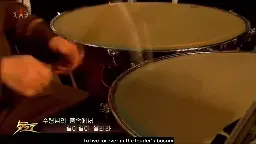
English subs and full video of concert uploaded by Phuong DPRK Daily.
In the first song, "Dear House in My Hometown", the singer refers to sowing seeds on the land given to them by the leader--this is in reference to the period immediately after Korea's liberation (1945) and prior to the war's escalation (1950), in which land reforms and various other reforms were carried out in Korea, through the People's Committees. This happened in the south as well, until the U.S. showed up, and reinstated many colonial-era authorities who set about overthrowing (and imprisoning and murdering) People's Committee members and replacing them with committees made of landlords, police, and businessmen, which eventually resulted in a near famine in the south and reinstitution of colonial-era grain collection policies, leading to peasants being beaten by cops for not meeting quotas. (More info here and here). In contrast, the northern People's Committees were able to continue with land reforms and other popular reforms without hinderance.
Quotes about the Korean War
> We killed civilians, friendly civilians, and bombed their homes; fired whole villages with the occupants--women and children and ten times as many hidden Communist soldiers--under showers of napalm, and the pilots came back to their ships stinking of vomit twisted from their vitals by the shock of what they had to do. -- U.S. Naval Captain Walter Karig, "Battle Report: The War in Korea"
> We went over there and fought the war and eventually burned down every town in North Korea ... some way or another, and some in south Korea, too. We even burned down Pusan—an accident, but we burned it down anyway. The Marines started a battle down there with no enemy in sight. Over a period of three years or so, we killed off—what—twenty percent of the population of Korea as direct casualties of war, or from starvation and exposure? -- U.S. Air Force General Curtis LeMay, "Strategic Air Warfare"
> What I saw Americans doing in Korea shook me to my heels. I suppose all my life I’ve been listening to propaganda about America being a civilised nation and some of this must have sunk in. Somehow, I never quite thought of Americans doing exactly what the Nazis did until I saw it with my own eyes. ... A thousand tons of bombs; a town obliterated; over 4,000 casualties in all; tens of thousands made homeless and bereaved—all to damage a rail-track. Does it make sense? This is bombing in the fashion that no British town ever met. I saw Coventry and I was in London all through the ‘blitz and I saw Wonsan after these raids. It was far worse than the worst the Nazis ever did. -- British journalist Alan Winnington, "I Saw the Truth in Korea"
As Winnington describes, U.S. recruits in the Korean war were, in large part, apparently clueless teens and young men who had joined up after the end of WWII to "see the world" and could not provide straight answers for why exactly they were bombing north Korea's villages and turning the country into a smoldering wasteland. As Winnington reported, after interviewing U.S. soldiers captured by the north and asking them why they were in Korea: "Most said: 'I don’t know.' Some said: 'It’s something to do with the United Nations, they told us.'"
In contrast, Koreans across the whole country understood deeply and personally what they were fighting for:
> The ghastly destruction of homes and lives that has gone with it has made the whole nation furious. Even former apologists of America are now their bitter enemies. On roads you can meet men by the hundred who tell you: “My home was bombed in . . . so I sent my wife and children to relatives in the country and I’m oil to volunteer.” In Wonsan, the wife and children of a worker, Wan Wun Chu, were killed in a raid while he was at work. “They are dead and I cannot call them back,” he said. “If I die it is little now. But I would give my last drop of blood to get revenge and drive those murdering dogs from our country. They tell me my place is in production and I will work my fingers to the bone to produce more for the army.”
As another U.S. soldier interviewed by Winnington said: "The civilian population hate us and they are ready to go with the North."
This observation lines up with what the CIA commented in 1950, when the north's army took control in Seoul: "Over 50% of Seoul's students are actively aiding the Communist invaders, with many voluntarily enlisting in the Northern Army" and that among Seoul's population, "the working class generally supports the Northern Koreans, while merchants are neutral and the intelligentsia continue to be pro-Southern," adding that the streets of Seoul were "crowded, especially with youths engaging in Communist demonstrations."
---
I think the songs at this concert give a good look into DPRK's view of the events and how this history is perceived there. Many musical performances in DPRK cover this historical timeline, depicting the liberation struggle, the post-liberation reforms, the wartime period, and the post-war reconstruction period. Other concerts often depict the strengthening of their defense capabilities and the advancing of socialism and making Korea strong and prosperous. Other songs tend to focus on their friendly relations with other countries, including songs about shared history and hopes with the south (this concert is an example of that).
-
"Our School" (우리학교) about a school for Koreans in Japan and their visit to DPRK (Korean and Japanese language)
www.yewtu.be 1차시 영화 요약 ㅣ 우리학교 [경계없는학교]1차시 영화 요약은 좋은 영화를 발굴하고 그 영화를 1차시에 처음부터 끝까지 볼 수 있도록 요약하고 있습니다. 보통의 경우 먼저 영상을 제작하고 후에 1차시 영화 요약을 업로드 할 예정입니다. 기회가 된다면 꼭 요약본이 아닌 전체 영화도 보시기를 권합니다. 감독의 연출 의도와 메시지, 1차시 영화 요약에서 담지 못한 작은 자들의 이야기도 보시기를 부탁드려요.
![1차시 영화 요약 ㅣ 우리학교 [경계없는학교]](https://lemmy.world/pictrs/image/f218fa0d-245e-4829-bcfd-610b53b4cca3.jpeg?format=webp&thumbnail=256)
This is a documentary showing a school for Zainichi Koreans as well as following the students when they visit DPRK (@30:53 if you want to see that part). This 45min video is an abridged version of the full documentary which came out in 2006.
The Japanese word Zainichi (在日) means "residing in (zai) Japan (nichi)". The Korean equivalent is 재일, which has the same meaning.
-
Korean Traditional Ondol Heating System Explained
yewtu.be [Arirang Prime] Ep.314 - Ondol under the Global Spotlight _ Full EpisodeEmbodiment of Green Energy, Ondol under the Global Spotlight ------------------------------------------------------------ [Subscribe Arirang Official YouTube] ARIRANG TV: http://www.youtube.com/arirang ARIRANG RADIO: http://www.youtube.com/Music180Arirang ARIRANG NEWS: http://www.youtube.com/ariran...
![[Arirang Prime] Ep.314 - Ondol under the Global Spotlight _ Full Episode](https://lemmy.world/pictrs/image/bce4d249-7c93-425d-8331-0b43942cae7c.jpeg?format=webp&thumbnail=256)
South Korea's Arirang news teaches about Korea's traditional underfloor heating system, which originated in the north and spread to all of Korea in the Joseon period, and is still used today in both traditional and modernized forms. The documentaries visit rural areas to show the traditional smoke-based ondol system in use, and also show the uses of modernized water-based ondol system.
"Embodiment of Green Energy, Ondol under the Global Spotlight"
> Ondol is a heating system that uses a humble furnace to warm the entire house. Considered one of the 3 great inventions of Korea, along with Hangeul and movable metal type, the ondol system has grabbed the world's attention.
> [Visitor to ondol house] "The fire is very pretty when lit up, and the sweet potatoes that are baked in the live embers taste so good."
> For Korean people, stones are very useful tools for overcoming the freezing winter. Heated pebbles can serve as pocket heaters, while wide stone slabs are sometimes used as cooking utensils. In this village in Gapyeong, Gyeonggi-do Province, the neighbors have gathered around a large stone slab over a fire to warm up. There is something special about this stone slab that is acting like a grill -- it's none other than a geudeljang [stone for making ondol floor]. They are cooking meat on a heated geudeljang.
Ondol also enabled traditional greenhouses, using the underfloor heating of the smoke to control temperature combined with steam from cooking pots to control humidity (@25:17)
> Joseon's greenhouse came 170 years ahead of Europe's first heated greenhouse ... The greenhouse was built to cultivate various crops and vegetables even during the winter. Its special feature is the ondol system ... The technology can easily pass as something used in today's world ... Thanks to this greenhouse, people were able to eat fresh vegetables in the middle of winter.
> [Resident of traditional house] "Living in an ondol room is good for your health. Your heart becomes warm and opens up more easily. All your troubles just melt away." [Other interviewees] "It's very warm. I remember how, as a child, I used to sit in an ondol room, where the air was cool while the floor was warm." "This ambiance of hanok [traditional house] is something that you can't experience in even the most luxurious hotels."
@38:22 you can see a train which has ondol floor in its cabins, people sit on the train floor to feel the ondol heating
> [Discussing modernized ondol which uses heated water instead of smoke] What will happen if the ondol heating system, considered clean, green energy, meets solar power? The result could be a perfect zero energy building.
"100 Icons of Korean History, ep. 35: Ondol"
> The Korean traditional floor heating system "ondol" dates back to the Gogureo era. It originated in cold northern regions and spread to all southern areas during the Joseon period. It still remains the indispensable part of Koreans' everyday lives. That's why many idioms in Korean are about the heated floor "ondol" or "gudeuljang."
> [Visiting Jeong-eup, North Jeolla Province] People here still use firewood to heat their houses and cook. Mothers cook for their families to the alluring scent of burning wood in the kitchen during cold winters and warm the rooms. When the family members come home, they snuggle under the covers and chat on the warm floor.
> Ondol is nostalgia. Smoke rising from a house's chimney evokes nostalgia in Koreans, who cherish even the familiar scent. Ondol brings people together and helps them forget about the cold.
> [Resident of Gunsan interviewed] "It's a good experience for foreigners as well. I'm proud to say Korean ondol is the best."
-
South Korean pastor known for bringing numerous N. Korean defectors to S. Korea now under investigation for molestation at the boarding school he established for defectors
www.blueroofpolitics.com "Asian Schindler" Under Investigation for MolestationYet another North Korean defector story goes awry.
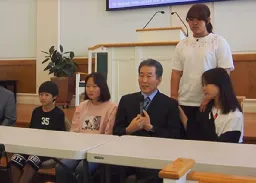
"Asian Schindler" Under Investigation for Molestation
> Pastor Chun Ki-won 천기원 목사, founder of Durihana 두리하나, a Christian aid organization known for helping North Koreans defect. Chun’s work helping over 1,000 defectors reach Seoul since 1999 has won him glowing coverage from CNN and the New York Times, including anointment as “the Asian Schindler.”
> Perhaps they spoke too soon. On August 2 and 3, KBS News reported that a police investigation revealed that Chun had been sexually molesting teenage girls at the boarding school he established for North Korean defectors. Dozens of girls reported that the pastor routinely groped them over a period of several years, to the point that several girls dropped out of the school and students who stayed would lock their doors if they saw the pastor coming to the dormitory.
> Chun, who had been scheduled to appear at an event in the United States, was banned from leaving the country.
South Korean pastor arrested for sexually harassing young North Korean defectors
> The 67-year-old pastor, identified only by his family name Chun, was the boarding school’s principal, reported Yonhap News Agency on Tuesday, citing the Seoul Metropolitan Police Agency.
> The news outlet also said Chun is accused of having sexually molested young defectors since 2018.
> In July, eight North Koreans, who studied at the boarding school, filed a complaint against Chun, reported KBS World. They alleged that Chun had sexually molested them for years, said the report.
-
South Korea: “Boneless Condos” Spark Fears of Collapse - Major Korean builders face credibility crisis in wake of accidents
www.blueroofpolitics.com “Boneless Condos” Spark Fears of CollapseCollapsed parking structure at a luxury condo had no steel reinforcements.
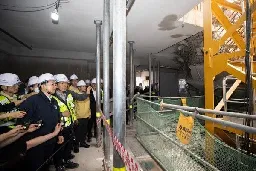
“Boneless Condos” Spark Fears of Collapse
> On April 29, the underground parking structure for a new luxury condo under construction in the Geomdan 검단 area of Incheon 인천 collapsed, leaving a crater two stories deep. Nobody was injured in the collapse, which occurred around 11:30 p.m. after the construction crew had left the site. Had the timing been slightly different, the collapse could have been far deadlier: residents were scheduled to move into the development by October, and the collapsed parking structure sat directly beneath a children's playground.
> The subsequent investigation led to the shocking revelation that the parking structure had little to no steel rebar reinforcement. Eight of the parking structure’s 32 structural columns remained standing after the collapse, fully half of which had no rebar despite construction blueprints specifically calling for reinforcement. The investigation also found that the concrete used for the column was weak after being improperly cured.
> But after the collapse prompted other construction companies to inspect the safety of their own buildings, GS Construction turned out not to be the only company with shoddy construction. The LH Corporation LH공사, a publicly owned company responsible for building subsidized housing, found missing steel beams and weak concrete in 21 of its 92 projects. The soaring cost of raw materials is pushing construction companies to skimp on materials, while a lack of skilled workers has resulted in mishaps like concrete being improperly cured or blueprint instructions being misread.
Major Korean builders face credibility crisis in wake of accidents
> Public distrust of domestic builders has been growing recently, as faulty construction methods have caused repeated collapses in apartment construction sites
> A government investigation revealed that GS E&C's omission of rebar in multiple pillars was the main reason behind a collapse in an underground parking garage of an apartment complex under construction in Incheon, April 29. HDC Hyundai Development Company has also faced criticism, since it was found that its negligence in safety measures resulted in a collapse at its apartment construction site in Gwangju in January last year, which killed six workers.
> To protect their apartment brands, Xi and iPark, both companies decided to tear down and rebuild the entire problematic apartment complexes, despite the significant costs they would have to bear.
-
A folk song of Jeju, Odolttogi (오돌또기)
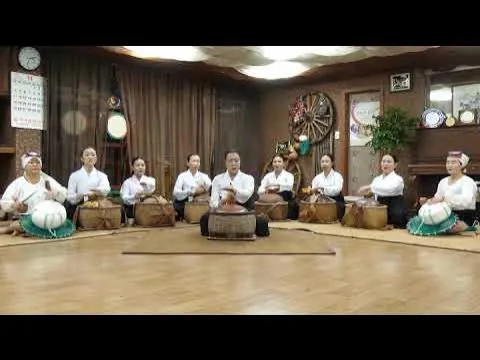
YouTube Video
Click to view this content.
Documentary about Jeju folk songs (in Korean)
Version of Odolttogi by singer 송소희
More info about the song (in Korean)
> (Machine translation)「Odoldtogi」is a folk song commonly sung by the public, with a melody that evokes the fragrant atmosphere of Jeju and a lyric that lists scenic spots. [...]「Odoldtogi」In the editorial of Mt. Hanlla, the beautiful natural scenery of Jeju Island appears, including Seogwipo female divers (Haenyeo), Sanpo sea fish, Seongsan sunrise, and Sabong sunset. It contains content such as love, separation, and loneliness.
-
Video: Interview of middle school students in Pyongyang (English)
streamable.com 평양 제1중학교 탐방 - Interview of English Class Students in PyongyangWatch "평양 제1중학교 탐방 - Interview of English Class Students in Pyongyang" on Streamable.
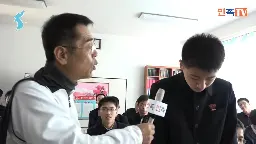
Full video is mainly in Korean, but in this portion, they are interviewing students during English class.
-
Massive Torchlight Parade to Celebrate the Founding of DPRK 75th Anniversary
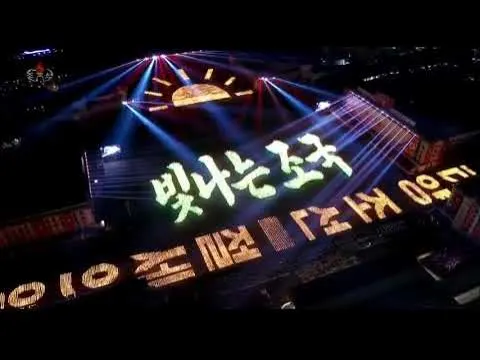
YouTube Video
Click to view this content.
-
Film about labor conditions under the south Korean right-wing dictatorship, covering the story of Jeon Tae-il, a worker who self-immolated in 1970 to call attention to horrific working conditions
yewtu.be 아름다운 청년 전태일(1995) / A Single Spark(Aleumda-un cheongnyeon Jeon Taeil)영화의 자세한 정보를 보려면 아래의 웹주소를 방문하세요. For detailed information on this film, visit : (한국어) https://www.kmdb.or.kr/db/kor/detail/movie/K/04802 (English) https://www.kmdb.or.kr/eng/db/kor/detail/movie/K/04802 영화글 : https://www.kmdb.or.kr/story/10/1253 감독(Director) : 박광수(Park Kwang-Su) 출연 : 문성근(영수),홍경인(태일)...

Korean title: 아름다운 청년 전태일 (Beautiful Youth, Jeon Tae-il); English title: A Single Spark. YouTube video has subtitles in various languages available.
A Single Spark is based on the real life of Jeon Tae-il, a 22 year old worker who witnessed the terrible labor conditions in south Korea in the 1960s and 70s under the anti-communist military dictatorship. The film was released in 1995, after south Korea's transition to a liberal/bourgeois democracy in the late 80s. Over 7000 people contributed funds to make the film, their names appearing in the end credits. The film covers Jeon's life from 1965-1970, framing it within the story of a researcher, studying Jeon's life in 1975 during a highly repressive and torture-ridden period of the dictatorship, with the researcher having to evade the authorities as he does his research, meanwhile his partner attempts to organize a union, facing intimidation and violence.
> As a tailor, Jeon witnessed the horrendous working conditions in the Seoul Peace Market (서울평화시장; Seoul Pyeonghwa Sijang). Such conditions included rampant tuberculosis due to poor ventilation (or the lack thereof) in the sweatshops, and the enforced injections of amphetamines to keep sleep-deprived workers awake and to work them overtime without proper compensation.
Article: Remembering the life of Jeon Tae-il and his sacrifice 49 years ago
> What he saw at Pyeonghwa Market was the suffering endured by girls even younger than him. At the time, over 90% of the market’s more than 20,000 employees were “young women with an average age of 18.” While the tailors were predominantly male, all of the sewing machine operators, assistants, and trainees were female. The trainees, who accounted for 40% of the 20,000 or so employees, were “children with an average age of 15.” These young girls were forced to “work 16-hour days for pay amounting to 90 to 100 won [less than US$1]” -- an amount that might just cover the cost of a bowl of noodles.
The film shows Jeon's process of trying to protect his coworkers from the abuses they suffered at work, and eventually discovering the existence of labor laws, and then researching them, and trying to inform his fellow workers that they have rights, and trying to raise public awareness about it. As times goes on, the workers gain more consciousness and fight for their rights, struggling to educate themselves on the laws despite the laws being written in difficult language and many workers being very young and/or lacking much formal education, however the bosses continue to abuse and lie to them about conceding to their demands for safer work conditions, and eventually Jeon publicly immolates himself while holding the Labor Laws, believing that if the laws are not being observed, they may as well be burned.
While the film focuses on the historical figure of Jeon Tae-il, it is also a look at 1960's and 70's era south Korea's repressive political environment and highly exploitative labor conditions.
-
"Who is living deep in the hills of Mt. Paektu?" Traveler visits people in the Mt. Paektu surrounding area in China
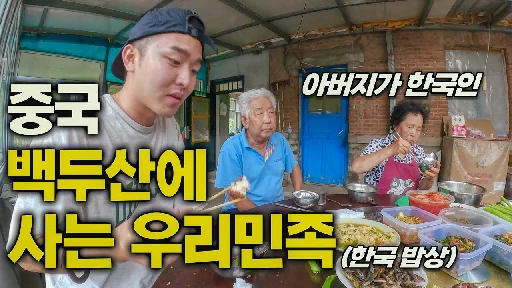
YouTube Video
Click to view this content.
@5:50 is where he arrives in the mountain village if you mainly want to see that. (Before that is him and the taxi driver trying to find it.)
-
"In typhoons, Korea’s delivery drivers are forced to choose between extra cash and safety"
(Article is from August 11) Excerpts:
> A 54-year-old delivery worker surnamed Kim was taking his 13th delivery call of the day when Typhoon Khanun came within reach of Seoul around 1 pm on Thursday. He was wrestling with whether to stop delivering for the day or to keep going despite the risk. The delivery platforms were still active, and some of them were even running promotions that offered delivery workers 10,000 won for every five orders they delivered. “If I want to reach my target income, I need to work on days like this, but it’s so dangerous. Just a little while ago, I almost slid out while I was crossing a bridge.”
> The Delivery Platform Labor Union and the Riders Union told the Hankyoreh on Thursday that most of the major delivery platforms had only told drivers to take precautions during the typhoon while keeping their delivery services up and running.
> Some of the platforms offered cash incentives to delivery workers under the pretext of safe driving. Coupang Eats sent a message to drivers in the Gwangju, Busan and Daegu areas offering incentives of 15,000-16,500 won (US$11-12) for a promotion called “Mission: Encouraging safe delivery.”
> “While the majority of promotions are ostensibly about safe driving, they’re designed to bring out more delivery workers on days when it’s dangerous to drive. That forces workers to choose between being safe and making some extra money,” said Kim Jong-min, head of strategy and policy for the Delivery Platform Labor Union. In a statement it put out on Thursday, the union said that delivery platforms’ typhoon response “left preparations for dangers up to individual riders.”
> The right to suspend delivery service in cases that present serious risks, including typhoons, heavy snowfall, heavy rainfall, and other circumstances is laid out in the deal reached by the Delivery Platform Labor Union and Baemin in June.
> On Thursday morning, Baemin partially suspended its services in areas such as Gangwon, Gyeongsang, Jeolla provinces and Jeju Island, where the effects of the typhoon were intense.
-
Korean language learning thread + Discussion
This is a thread for Korean language learners to share resources, progress, experiences, or ask questions.
---
Discussion: It has been about 1 year since the Korean language learning threads were discussed and began in this community. Originally, someone had suggested a weekly thread, but it began as monthly to see how active it would be. As I went offline for a few months, and seemingly @[email protected] had some time away too, the threads became sporadic. However, although the threads became sporadic, the community didn't seem to express interest that they be resumed more regularly (which, I am guessing, is because interest in it is rather low).
Now, I am wondering how much interest there is in continuing them. I'm happy to keep a featured resources/discussion thread up, but it seems that regularly posting new ones may be unnecessary. However, it's also possible that if I had updated the threads more, maybe it would have attracted more activity. I'd like to hear opinions on the matter, and also encourage anyone to feel free to make posts about the Korean language in this community if it interests you regardless of if there is a featured thread about it. Thanks for reading.
-
"What does Childrens' Day look like in north Korea?" (Korean language; English summary in post)
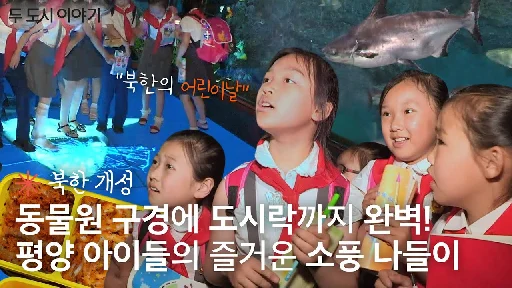
YouTube Video
Click to view this content.
A clip from a south Korean broadcast, filming events in DPRK on Childrens' Day in Pyongyang, and visiting Kaesong. I thought the video was nice and wanted to share.
I will try to summarize and translate a bit (please let me know if you see errors with my translation, I'm not fluent in Korean). However I think the video is also enjoyable just for the images too.
---
@0:00 - They take a flight and land in Pyongyang airport and then drive into the city.
@1:02 - They see that many people are gathered celebrating Childrens' Day. Kids are chanting, "Win, win! Our player, win!" ("우리선수 이겨라") at a relay race, with kids racing to put Korean province names on a map (@1:30 one kid amusingly puts a province in a wrong spot)
@1:45 - Child: "I've been looking forward to this day, I'm going to win in this event."
@2:03 - Adult: "It makes me happy to see my granddaughter get first place in the competition. Seeing her grow up, studying well, getting so much taller."
@2:15 - Pyongyang Central Zoo. (@2:34 - Kids have a scared/excited reaction to an animatronic dinosaur and shark video)
@2:49 - Child: "The appearance of the Jurassic and Cretaceous period dinosaurs were really impressive."
@2:57 - Children eat their lunch together, sharing their food with each other. (Narrator: "What will the kids have in their lunch? Ah, of course, it's a picnic, so they have kimbap.")
@3:25 - Audience of event is buying snacks at a rest area(?). (@3:45 Worker at rest area: "Every day hundreds of people come by, and on many days we have up to a thousand people.")
@3:52 - People are trying fruits, such as chamoe melon @3:57 Narrator: "But, more popular than the sweet melon, is the refreshing cucumber." (Shows people choosing cucumbers)
@4:09 - Travel on highway to Kaesong
@4:15 - Kaesong city, first they see Namdaemun of Kaesong, the historical south gate of the city
@4:48 - Crew meets a lecturer from the Kaesong Ethnic Heritage Protection Center to show them Namdaemun, @4:57 guide explains how the bombing from the war destroyed it but during the post-war recovery it was reconstructed
@5:15 - They look at Yeonboksa temple bell (Wiki), examining the Buddhist inscriptions
@5:46 - Camera man notices bullet holes on the bell, guide shows him there are 27 bullet marks in it and points out there's a spot where one bullet is still lodged inside
@6:24 - Showing the street scenes of Kaesong (@6:42 someone points out Kaseong Preservation Street with traditional houses)
@6:51 - Showing the traditional style houses
@7:02 - People dance, sing and play traditional music and games
@7:32 - They go to a popular spot on the mountain to look at the town scenery
-
A north-south Korea joint production about north and south Korean cities, "두 도시 이야기" (Tale of Two Cities) (links+info in post)
It's a 2018-2019 series shown on JTBC (JTBC's page), I haven't seen English subtitles for it, but I think it is still worth watching for a non Korean speaker even just to see some nice footage of DPRK that doesn't show it with eerie music or purposely film in dim and cold weather, etc. but rather just presents each city nicely.
It focuses on showing cultural and daily life scenes from a north and south Korean city in each episode.
I will try to find episodes/clips of it and link them here, so I may edit the post a bit over time. Please let me know if you see errors in my post.
---
Seoul and Pyongyang (서울-평양)
Ep. 1 "Seoul Cuisine, Pyongyang Cuisine" (서을요리·평양료리)
Ep. 2 "Han River, Taedong River" (한 강·대동강)
---
Sokcho and Wonsan (속초-원산)
---
Suwon and Kaesong (수원-개성)
Ep. 1 "City of Kings" (왕의 도시)
Ep. 2 "City of Merchants" (상인의 도시)
Clips:
‘Kaesong Folk Preservation Zone’ in Kaesong, like a (south Korean) Hanok village ("우리나라의 한옥마을 같은 개성의 ′개성 민속 보존 구역′")
‘13-cheop table’ at Kaesong folk inn, with traditional props adding elegance ("전통 소품으로 운치를 더한 개성 민속 여관의 ′13첩 반상′")
Legends handed down in Kaesong’s clear nature ‘Bakyeon Waterfall’ ("개성의 맑은 자연 ′박연폭포′에 전해져 내려오는 전설들")
"What does Children’s Day look like in North Korea? Meeting North Korean children and elders made me feel like I was traveling to Pyongyang and Kaesong all at once." ("북한의 어린이날은 어떤 모습일까? 북한 아이들과 어르신들의 만남에 평양과 개성을 한 번에 여행하는 느낌") (English summary of this video here)
-
Exposing Imperial Japan - Blog that translates old newspapers from Imperial Japan into English, often covering the colonial era in Korea
exposingimperialjapan.com Exposing Imperial JapanImperial Japanese newspapers transcribed and translated into English
Webmaster: "Ever since someone dumped a trove of old newspaper issues onto the Internet Archive in October 2021, I have been slowly translating and posting select articles to share my findings with the wider community. I am a US-educated Japanese person concerned about the spread of historical misinformation by Japanese far-right activists supporting revisionist and denialist viewpoints about the history of Imperial Japan, especially with respect to war crimes and atrocities. I hope that this blog will help combat historical misinformation about Imperial Japan on the Internet, and that professional historians will be inspired to start an online resource like this one, but on a much larger scale."
-
New documentary: The Truth About North Korea - A People’s History of the DPRK
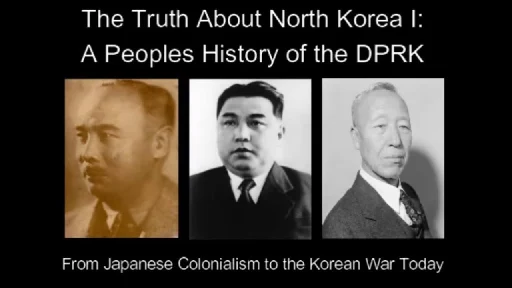
YouTube Video
Click to view this content.
-
The slander of the DPRK is the biggest slander of a country in history
The name has been almost permanently ruined. Whenever people hear of it, they always think of no food, 1984, worshipping the leader, getting your entire family arrested for not doing so, all that stuff. And if you say otherwise, they just call you a propagandist who is hiding the truth. And even if Korea's government does anything like build a water park, people say that it is just to "fool the world into believing they are good". Like they can't even build an entire village without people saying that they are just building it to deceive people.
At least China is taken seriously by a lot of people.
-
"Can S. Korea qualitatively change its alliance with the US?" (article in liberal south Korean paper Hankyoreh)
"Has the alliance between South Korea and the US, presupposed by the existence of a common enemy, run its course?"
"The “America First” mentality has been damaging to US’ image as an ally."
Excerpts:
> The alliance between Seoul and Washington is often lauded as a “successful” one. During the Cold War, South Korea fulfilled its purpose for the US as a “forward base in the struggle against communism” and the “showcase of capitalism and democracy.” Leaning on the US for its national security, Korea was able to make its great leap into advanced nation status.
> Park Myung-lim, a professor at Yonsei University, has characterized Korea’s alliance with the US as one “with substantial tension” and “conflictual.” [...] the scholar referred to the Janus-faced nature of the US in Korea during the Cold War as both a guarantor of authoritarianism and a sponsor of [liberal] democracy.
>Washington did not support the April 19 revolution in 1960. It was aware of, but did nothing to stop, the military coup by Park Chung-hee on May 16, 1961, and in the immediate aftermath, spurned Prime Minister Chang Myon’s request to quash the mutiny. When Chun Doo-hwan staged his own coup on Dec. 12, 1979, and oversaw a massacre in Gwangju the following May, the US stayed silent and abetted Chun. > > For these reasons and more, many Koreans who lived through the military dictatorships of the 1960s-80s remember the US as a backer of dictatorship. They also form the historical backdrop for the anti-American sentiment that was rampant in Korea in the 1980s through the 2000s.
> In recent years, the US has increasingly pressured or made requests of its ally according to its own national interests or international strategy. US President Joe Biden’s visit to South Korea in May 2022, shortly after the inauguration of the Yoon Suk-yeol government is illustrative of the shift in relations between the two countries. > > Upon arriving at Osan Air Base on May 20, Biden went straight to the Samsung Electronics’ Pyeongtaek campus, where he called for strengthening the Korea-US alliance through semiconductors. > > Two days later, before leaving Seoul on May 22, Biden met privately with Hyundai Motor Group Chair Chung Eui-sun at the Hyatt, where he was staying, and secured an announcement of US$5 billion in additional investment in the US by 2025. His visit schedule started with Lee Jae-yong of Samsung and finished with Chung from Hyundai/Kia. This signified that the economy was his main priority — and that even there, it was less about how he could help and more about what he could get.
> Citing the need for global supply chain reorganization, Biden has been overtly pushing Samsung Electronics and SK Hynix to cut off ties with China and not to fill the gap left there by US semiconductor companies. He also declined to include Hyundai/Kia among the targets for electric vehicle tax credits in the Inflation Reduction Act (IRA).
> The shifting in the South Korea-US alliance can also be seen in Washington’s strategy to pressure Beijing. The US has looked for stronger trilateral security cooperation with South Korea and Japan as a way of hemming China in, and it has demanded improved relations between Seoul and Tokyo as a necessary step in that direction.
> The increasing decoupling of the two sides’ national interests raises the need for a new concept of our relationship.
> An overwhelming majority of South Koreans still name the US as our most important neighbor when it comes to peace on the Korean Peninsula. In a Gallup Korea opinion survey during the second week of August 2022, 75% of respondents selected the US as Korea’s most important neighbor, compared with just 13% who picked China. > > Yet South Koreans are not entirely on board with policies that uniformly favor the US. When asked for their opinion on South Korea’s best diplomatic response to the US-China competition in a National Barometer Survey between July 11 and 13, 2022, an equal 38% of respondents each chose “foreign policies based on the South Korea-US alliance” and “balanced US and China policies that take China into account.”
> “Sustaining the South Korea-US alliance, denuclearizing the Korean Peninsula, and establishing a peace regime on the peninsula is an impossible trinity of policy goals that cannot be achieved simultaneously,” explained University of North Korean Studies professor Koo Kab-woo. “South Korea is facing a trilemma,” he concluded.
> On the topic of the “future of the South Korea-US alliance,” Moon Chung-in — someone who formerly served as Sejong Foundation chairperson and who has long been involved in friendly cooperation between South Korea and the US — raised three main questions “Is the alliance a means or an end in itself?” he asked. “Can the national interests of South Korea be unified with those of the US? And can strategic dependence on the US coexist with South Korean autonomy?” > > An alliance presupposes an enemy. Can South Korea achieve a qualitative change in the alliance for the sake of denuclearization, peace, and prosperity on the Korean Peninsula? Is the idea of a collaborative relationship with the US that does not involve an alliance just an impossible dream? > > When you can’t imagine something, it can never become reality.
-
People are the Sky - Documentary by Dai SIl Kim Gibson
cross-posted from: https://lemmy.ml/post/1181841
> People are the Sky is an excellent documentary that I've still never heard referenced when talking about DPRK docs so here you go, I'll leave this up for you comrades for a few days :) Follows a Korean-American making a return visit to her homeland. Not perfect, but very good 💙
-
What is life actually like in the DPRK
I want to see a different perspective aside from that narrative regurgitated by western "news" outlets
-
Monthly pinned Korean language learning thread - November 2022
This is a thread for Korean language learners to share resources, experiences, or ask questions.
-
Loyal Citizens of Pyongyang in Seoul - A short independent documentary on the world of defectors and South Korean Intelligence
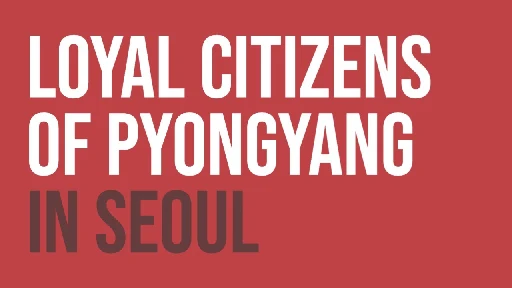
YouTube Video
Click to view this content.
